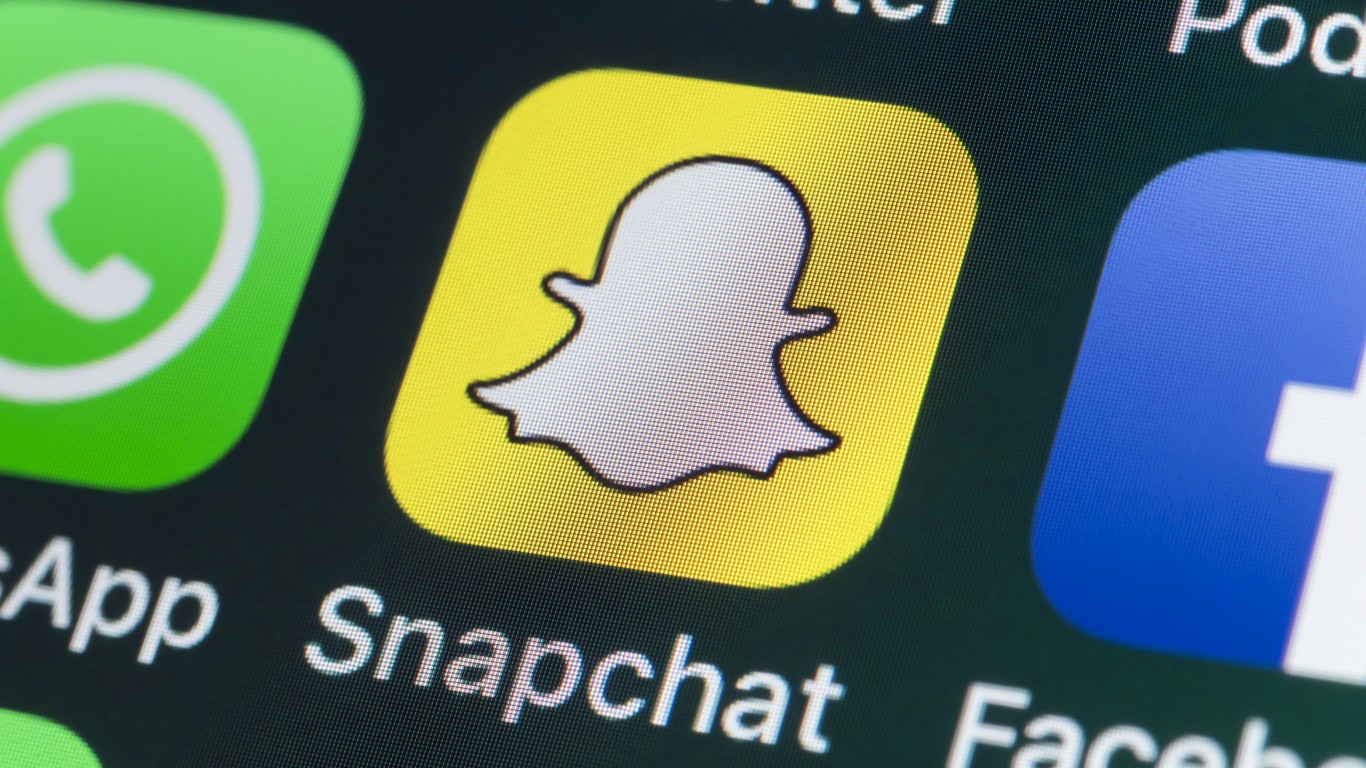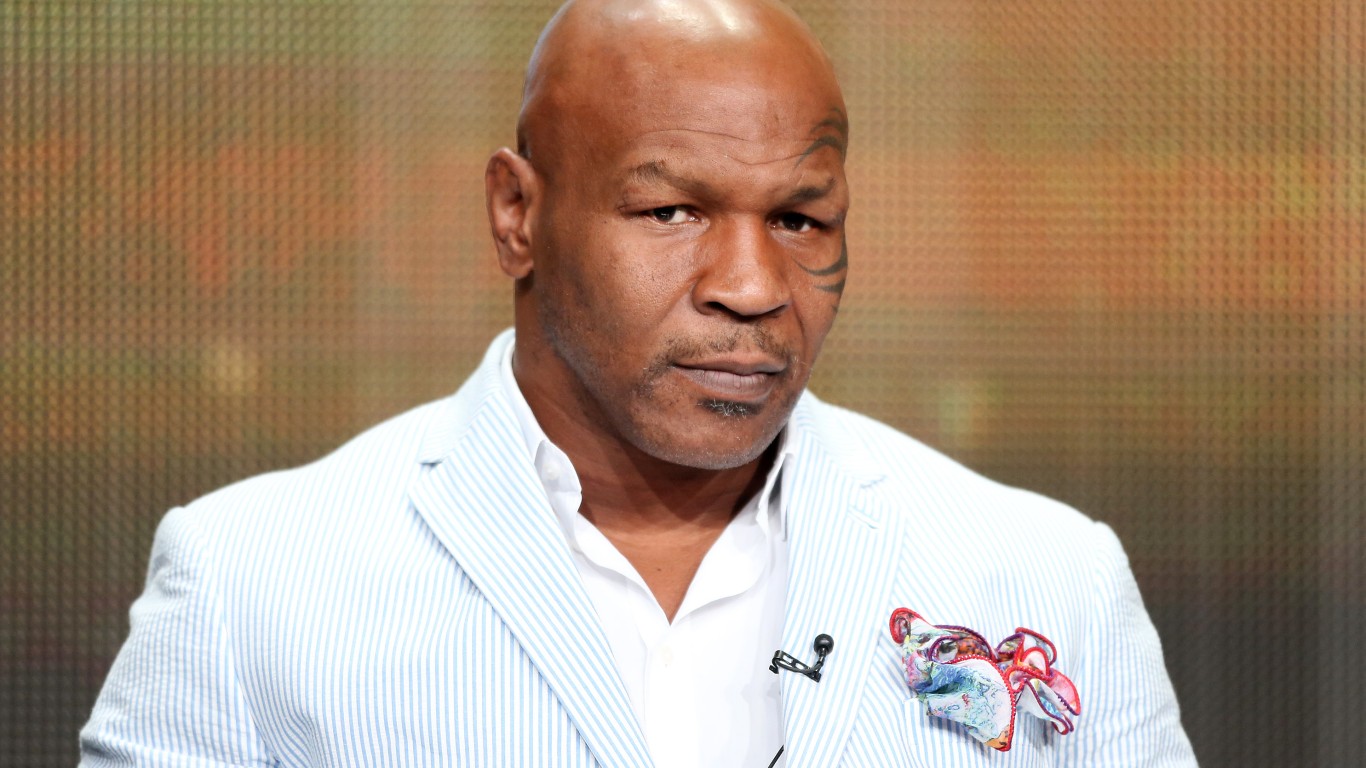
Is TikTok the new Snapchat? The Chinese-owned video sharing service is the hottest app for the under-21 set, with preteens sometimes begging parents to let them have accounts.
All those silly dance and lip-synching videos have added up. Over 2 billion people worldwide have downloaded TikTok, according to SensorTower, a data analysis company. The U.S. accounts for 165 million of those downloads.
Like Snapchat, TikTok focuses on the very short form. Most TikTok videos last less than 15 seconds.
SensorData reports that lifetime user spending on TikTok has risen to $456.7 million. China accounts for $331 million, while the U.S. ranked No. 2, with users spending $86.5 million.
TikTok-owner ByteDance, based in Beijing, is considered the world’s most valuable startup right now. There’s even talk of a possible IPO. Sounds like the early days of Snap Inc. (NYSE: SNAP), right?
What Makes TikTok Tick
TikTok grabbed headlines this week when it named Kevin Mayer as its new CEO. Mayer led the direct-to-consumer streaming division at Disney Co. (NYSE: DIS), including Disney+, Hulu and Hotstar, the leading streaming service in India.
He was a key figure in Disney’s acquisitions of Marvel, Pixar and Lucasfilm. That history leads some analysts to believe TikTok may go on its own buying spree. Expect Mayer to focus on the content and push for brand development within TikTok.
Mayer will also have to address national security concerns about TikTok, an issue that surfaced in Washington last year. The U.S. military and several government agencies banned employees from using TikTok on government-owned devices, citing concerns about Chinese ownership.
The fear is that all that data on TikTok users (activity, location, etc.) could be used by the Chinese government. Critics also allege that TikTok censors content that might be objectionable to Chinese authorities. They claim this censorship even happens with users in the U.S.
Facebook (NASDAQ: FB) clearly sees TikTok as a competitor. Facebook CEO Mark Zuckerberg publicly dinged TikTok during the massive Hong Kong protests last year. “While our services like WhatsApp are used by protesters and activists everywhere due to strong encryption and privacy protections, on TikTok, the Chinese app growing quickly around the world, mentions of these protests are censored, even in the U.S.,” he said. “Is that the internet we want?”
After Mayer become CEO this week, Sen. Josh Hawley (R-Mo.) tweeted:
.@tiktok_us previously told me they couldn’t attend hearings and testify because executives were located in #China. But this new executive lives in the USA. I look forward to hearing from him. Under oath. https://t.co/XPfiVpo9Ta
— Josh Hawley (@HawleyMO) May 18, 2020
TikTok is sensitive to these concerns, even taking issue with the phrase “Chinese-owned.” A spokesman told The New York Times this week that ByteDance Ltd., incorporated in the Cayman Islands, owns TikTok and all the Chinese businesses.
That corporate paperwork dodge isn’t likely to assuage regulators. After members of Congress raised concerns, the Committee on Foreign Investment in the United States (CFIUS) launched a national security investigation late last year.
The committee, which reviews deals by foreign acquirers for potential national security risks, is looking into ByteDance’s $1 billion acquisition of U.S. social media site Musical.ly, according to Reuters. TikTok absorbed Musical.ly in 2018 and all of its users were migrated to TikTok.
To address these issues, ByteDance has reportedly considered a spinoff of TikTok, or creating a U.S.-only division. Just this week, Bloomberg valued ByteDance at over $100 billion. Its investors include the Bank of China, Bank of America, Citigroup, Goldman Sachs, JP Morgan Chase and UBS. Some have speculated that an IPO could happen this year or in 2021.
Should Snap Worry?
While Snap and TikTok don’t provide exactly the same service, they are competing for mindshare among the same young user base. TikTok is clearly leading in the app download competition, as mentioned earlier.
SensorTower notes the company is seeing new levels of popularity since the pandemic lockdowns began. For the first quarter, TikTok was the top download at 315 million. WhatsApp, the messaging service owned by Facebook, was the second most popular, downloaded 250 million times.
Globally, Facebook is the most popular social media platform, with 2.5 billion active users, according to the data firm Statista. TikTok and its Chinese counterpart, Douyin, rank at No. 7, with 800 million users. Snapchat trails with 398 million active users. Meanwhile, TikTok shows impressive user growth, with its base jumping 56% to 28.8 million from October 2019 to March 2020, according to Comscore.
TikTok is also directly going after Snapchat’s business. A new advertising format allows “users to add interactive visual effects from advertisers to their TikTok videos that interact with the physical environment around them,” Digiday reported. “A car could zoom the length of the kitchen table, or the creator could interact with an advertiser’s mascot as it bounces around the room, for example.”
Chipotle recently launched the “TikTok Hack Menu” which uses short videos to show customers how to create personalized meals. “DIY Nachos” are among the off-menu secrets featured in the TikTok ads.
Oreo’s #CookieWithACause campaign asked TikTok users to show how they could get a cookie from their forehead to their mouth without using their hands. If 1 million videos were published, Oreo said it would donate money to Save the Children.
These are the types of campaigns that would also work well on Snapchat. The company is pushing augmented reality features to advertisers.
Wall Street remains generally positive about Snap, which posted impressive results last quarter. Like many stocks, Snap slumped in mid-March, dropping below $9 a share when the COVID-19 crisis forced millions of people to stay home. Since then the share price has been steadily rising, closing at $18.23 on Wednesday. The stock’s 52-week high is $19.76.
Thank you for reading! Have some feedback for us?
Contact the 24/7 Wall St. editorial team.
